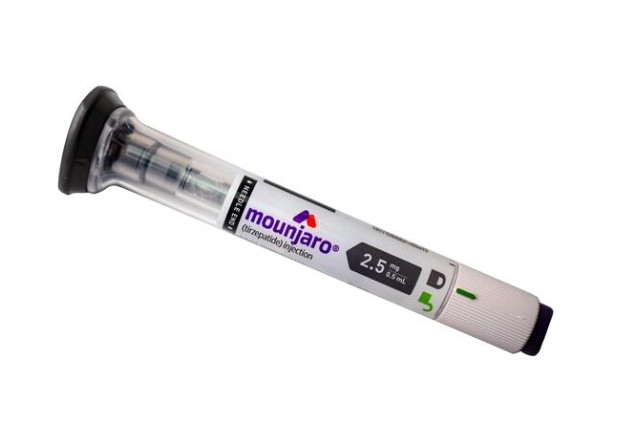Losing weight can be difficult, and some turn to medications for extra help. The Mounjaro injection aids weight loss by regulating appetite and boosting metabolism for lasting results.
What Is Mounjaro Injection?
There was a time when weight loss journeys seemed limited to strict diets, exhausting workouts, and endless frustration. Then came Mounjaro injection, quietly stepping into the picture—not as a magic potion, but as a scientifically designed medication originally made for type 2 diabetes.
As it turned out, this weight loss injection offered something more. It helped people shed stubborn weight while supporting their blood sugar balance. Mounjaro is a once-weekly injection for type 2 diabetes that activates GLP-1 and GIP receptors to improve blood sugar control and support weight loss.
Suddenly, a new path opened for those who had struggled with weight loss for years.
How Does Mounjaro Work for Weight Loss?
The body runs on signals. Some tell us we’re hungry, others tell us to stop eating. Mounjaro works by uniquely tapping into these signals. It mimics two hormones: GLP-1 and GIP. These aren’t just complicated names—they’re the body’s natural appetite and blood sugar managers.
How Mounjaro Controls Hunger and Blood Sugar?
When Mounjaro activates these hormones, something shifts:
- Appetite decreases.
- Fullness lasts longer.
- Blood sugar stays in balance.
It’s as if the body is finally working with you instead of against you, making it easier to follow a healthier eating rhythm without constantly battling hunger.

Impact of Mounjaro Weight Loss Injection
Weight loss with Mounjaro weight loss injection isn’t an overnight story. It’s a journey that unfolds over time. Clinical studies have shown that people can lose between 15% and 22.5% of their body weight, but only with patience and consistency.
How Mounjaro Weight Loss Progresses Over Time?
Each injection is like another step forward. Over the weeks, cravings fade, portions shrink naturally, and weight begins to come off steadily. It’s not a fast race—it’s a steady walk toward better health.
How Mounjaro Supports Your Lifestyle Changes?
Even though Mounjaro weight loss injections can make the path smoother, they aren’t meant to do all the work alone. People who experience the best results pair the injection with:
- Balanced, nutrient-rich meals
- Regular physical activity
- Better sleep and hydration
- Emotional support systems
Mounjaro doesn’t replace the journey—it simply helps make the road less steep.
Common Side Effects of Mounjaro
Starting Mounjaro often comes with side effects like nausea, vomiting, diarrhea, constipation, and tiredness. Some individuals may also experience mild redness or itching at the injection site, but these symptoms typically subside as your body adjusts.
Mild Side Effects You Can Manage
Other manageable issues include bloating, burping, indigestion, acid reflux, and feeling full quickly. These mild effects often improve over time and can be eased by eating smaller meals and staying hydrated.

Serious and Long-Term Side Effects
Though rare, serious risks like severe stomach pain, gallbladder problems, pancreatitis, and low blood sugar can happen, especially if combined with other diabetes medications.
Mounjaro may carry a risk of thyroid cancer, so consult your doctor before use. Always contact your doctor if you experience severe or worrying symptoms.
Mounjaro vs Ozempic: What’s the Difference?
Both Mounjaro and Ozempic are injectable medications used to manage type 2 diabetes and support weight loss, but they work slightly differently.
Mounjaro (tirzepatide) targets two hormones – GIP and GLP-1 to better control blood sugar and appetite, while Ozempic (semaglutide) focuses only on GLP-1.
Many people report that Mounjaro may lead to faster or greater weight loss compared to Ozempic, but experiences can vary.
Both medications can cause similar side effects, like nausea and digestive issues. Your doctor can help you decide which option best fits your health goals and needs.
Who Can Benefit from Mounjaro Weight Loss?
Mounjaro weight loss injection isn’t for everyone. It’s usually recommended for:
- Adults with a BMI of 30 or higher
- Adults with a BMI of 27 or higher who also have weight-related health issues like diabetes, high cholesterol, or high blood pressure
Who Should Avoid Mounjaro?
- A personal or family history of thyroid cancer
- A history of pancreatitis
It’s a decision that should always be made with professional medical advice.
Is Mounjaro the Right Step?
For many, Mounjaro injection feels like the missing piece—a tool that helps them stay on track without constantly feeling defeated by cravings.
But this is not the final destination. It’s part of a bigger health story that includes new habits, patience, and a long-term mindset.
The Mounjaro weight loss journey is about more than numbers on a scale. It’s about building a life where feeling healthy and confident becomes the new normal.
Mounjaro Weight Loss: The Path to Better Health
In the end, Mounjaro for weight loss is one path among many. It offers powerful support but asks for commitment, awareness, and guidance along the way.
For those ready to take the step, it can become a meaningful chapter in their story toward better health. The choice is yours—but you don’t have to walk the path alone.
Frequently Asked Questions
Can Mounjaro be used for weight loss without diabetes?
Some doctors prescribe it off-label for weight loss, but it’s officially approved for type 2 diabetes.
What are the benefits of GLP-1 and GIP receptor agonists?
They help control blood sugar, suppress appetite, and support weight loss with convenient once-weekly injections.
Is Mounjaro safe long-term?
Generally safe, but regular medical monitoring is recommended.






